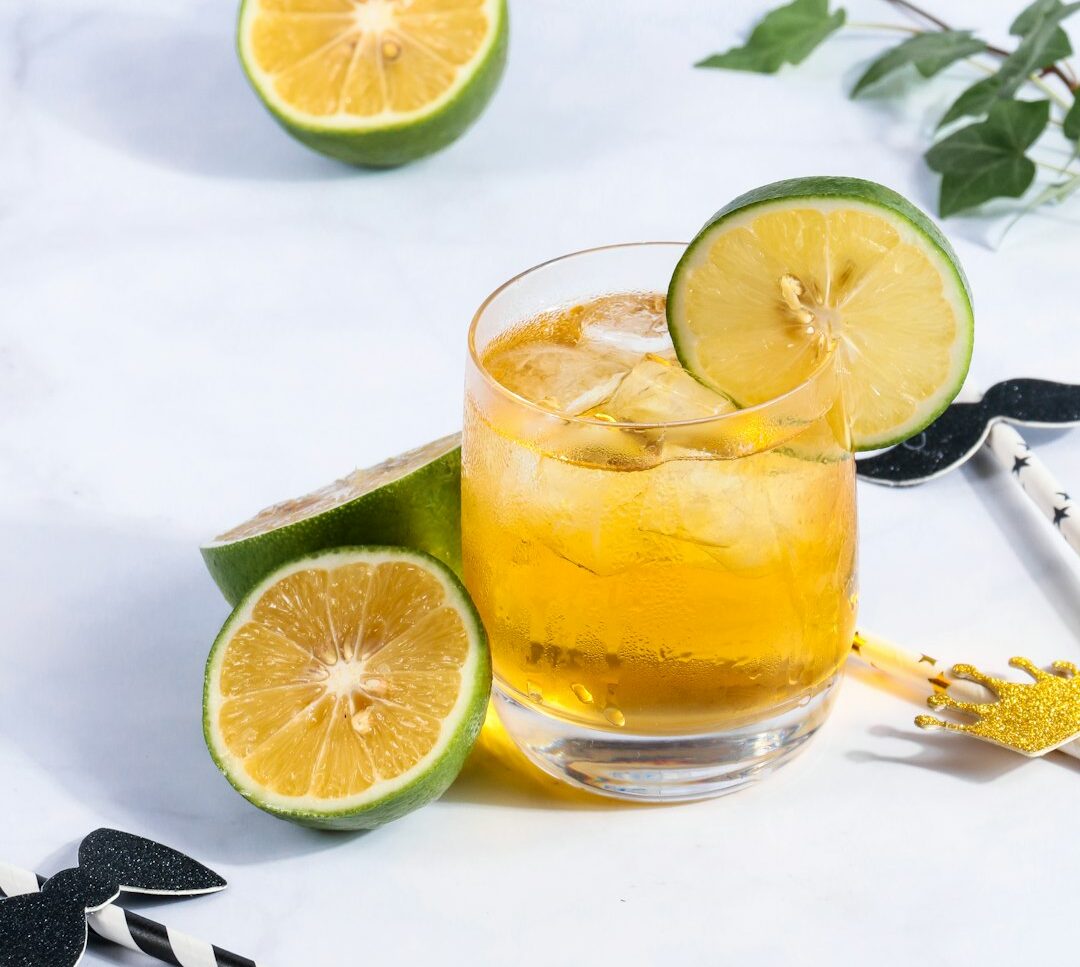Photo by Kelsey Chance on Unsplash.
Functional Beverages vs Alcohol: How They Compare
Functional beverages are drinks enhanced with additional ingredients intended to provide health benefits beyond basic nutrition.
They often contain components like vitamins, minerals, herbs, amino acids, or additional raw fruit or vegetables. Popular categories of functional drinks include CBD-infused beverages, nootropics, adaptogens, and THC drinks.
What Makes Functional Beverages Unique?
Functional beverages are designed to target specific health benefits, such as boosting mental clarity, enhancing mood, or supporting physical health. These drinks cater to the sober-curious and those seeking a low-alcohol lifestyle by offering an alternative that nurtures both mind and body. The versatility in ingredients allows for tailored health benefits, making them appealing to a broad audience. Furthermore, they often come in various flavors and formulations, ensuring there's something for everyone's palate.
Alcohol: A Cultural Mainstay
Alcohol has been a part of human culture for centuries, celebrated for its ability to enhance social gatherings and offer relaxation. However, alcohol consumption is not without its drawbacks. Health concerns, such as liver damage, addiction, and impaired judgment, have prompted many to seek alternatives.
Alcohol's Social Role
Alcohol has played an important role in social interactions for quite some time. It is known to help people loosen up, celebrate, and bond. Despite its social benefits, the adverse effects on health and well-being cannot be ignored. This has led to the rise of zero-proof alternatives that mimic the social experience without the negative consequences! These alternatives are becoming popular in social settings, offering a way to enjoy the festivities without the risk of a hangover. It's a win-win.
Photo by Matteo Vistocco on Unsplash.
Health Implications of Alcohol
Excessive alcohol consumption can lead to a myriad of health issues, including liver disease, increased cancer risk, heart problems, and mental health disorders. These risks have driven the sober-curious movement and increased interest in healthy beverages. The growing body of research highlighting alcohol's health impacts has made many reconsider their drinking habits. As a result, there is a burgeoning interest in drinks that provide enjoyment without the health risks.
Changing Perceptions of Drinking
The perception of drinking is changing, with an increasing number of people questioning the necessity of alcohol in social situations. This shift is influenced by a greater emphasis on health and wellness. People are becoming more aware of the long-term effects of alcohol consumption and are seeking ways to enjoy life without compromising their health. Functional beverages are at the forefront of this change, providing a viable alternative for those rethinking their drinking habits.
Comparing Functional Beverages and Alcohol
Functional drinks and alcohol serve different purposes and appeal to different audiences. Here's how they compare:
Health Benefits vs. Health Risks
Functional beverages offer various health benefits tailored to individual needs. Whether it's a CBD drink for relaxation or an adaptogen-infused tea for stress relief, these drinks provide positive health effects. In contrast, alcohol consumption poses significant health risks if not consumed in moderation. The choice between the two often comes down to personal health goals and lifestyle preferences. For those focusing on health, functional beverages present a compelling option.
Regular and excessive alcohol intake poses serious health risks. According to the World Health Organization (WHO), alcohol is a Group 1 carcinogen, meaning it has been conclusively linked to various types of cancer, including breast, liver, and colorectal cancer. Chronic use can also lead to liver disease, high blood pressure, depression, and a weakened immune system. Even moderate drinking can disrupt sleep, increase anxiety, and impair cognitive function over time (source).
Social Experience
While alcohol has long been the go-to for social gatherings and nights out with friends, functional beverages are quickly gaining ground and emerging as a refreshing, health-conscious alternative. Non-alcoholic drinks, like zero-proof cocktails, provide a similar social experience without the hangover. They allow individuals to engage in social settings without compromising their health goals. The rise of sober bars and events is testament to the increasing acceptance of alcohol-free socializing. These spaces offer an inclusive environment for those choosing not to drink alcohol.
Mind and Body Impact
Functional drinks often enhance mental clarity and physical wellness. Nootropics boost cognitive performance, while adaptogens help manage stress. Alcohol, on the other hand, can impair cognitive function and lead to poor decision-making. The immediate and long-term impacts of these beverages on the mind and body are starkly different. For individuals focused on personal development and wellness, functional beverages offer a clear advantage.
Photo by Morton Xiong on Unsplash.
Can Functional Beverages Really Replace Alcohol?
Whether functional beverages can replace alcohol depends on individual preferences and goals. If you're looking to cut back on alcohol or lead a healthier life, opting for these drinks as alcohol alternatives is a smart decision. They provide the social and sensory experiences many crave, minus the health risks associated with alcohol.
Embracing a Low-Alcohol Lifestyle
The low-alcohol lifestyle encourages moderation and mindful consumption. Functional beverages fit seamlessly into this lifestyle, offering a middle ground for those not ready to give up alcohol entirely but who wish to reduce consumption. This approach allows individuals to enjoy social activities without the pressure to drink heavily. It inspires a lifestyle rooted in balance, focusing on physical health, mental well-being, and happiness.
Photo by Arifur Rahman on Unsplash.
The Future of Drinking
As the wellness trend continues to grow, the demand for functional beverages is likely to increase. These drinks will continue to evolve, offering more options for those seeking a balance between enjoyment and health. Innovations in this space are expected to introduce new flavors and functional ingredients. This evolution will cater to the diverse needs and preferences of consumers, ensuring functional beverages remain a staple in modern drinking culture.
Personal Journeys with Functional Beverages
Many individuals have shared their personal journeys of transitioning to functional beverages. These stories often highlight the positive changes in health and lifestyle that come with reducing alcohol consumption. Personal testimonials and experiences can be powerful motivators for those considering a shift. Personal stories and experiences can be powerful and really inspire others who are thinking about making the change. They provide real-world examples of the benefits and challenges of embracing functional drinks over alcohol.
Conclusion
Functional beverages provide an exciting alternative to traditional alcoholic drinks. With their health benefits and ability to offer a social experience, they are a compelling choice for the sober-curious and health-conscious. While they may not entirely replace alcohol for everyone, they represent a significant step towards a more balanced and health-focused lifestyle.
As more individuals embrace wellness drinks, the landscape of social drinking is poised for change. Whether you're looking to cut back on alcohol or explore new health trends, functional beverages offer a refreshing and healthful option. The continued growth and evolution of this market suggest that functional beverages will play an increasingly important role in the future of socializing and personal wellness.















